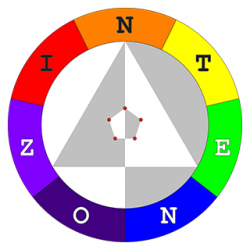Welcome to the first post for Blog @ intZone! If your curiosity was piqued by the 3 “int“s on the Home page, well this is where they come alive – an interchange of ideas based on interests in technology to help you integrate them into your lives. And yes, those are the core values of intZone.com 🙂
With the “marketing” out of the way, this blog will be sharing tips & tricks from the IT field plus solutions to common problems. If you have a burning question that you wish to be answered here for everyone to learn, feel free to hit the Contact page and send an enquiry!
First up, you will notice that at the end of the Services page, 3 technologies are listed: PHP, WordPress and Zend Framework 2. While there are many other excellent programming languages, content management systems (CMS) and frameworks out there, intZone has chosen to focus on these 3 in order to give clients the best experience possible. This can be summed up by a Cantonese phrase, “周身刀, 無張利”, which basically means “jack of all trades, master of none”. Imagine using an entirely new technology for each client without reflecting and improving on the previous websites *shudders*.
Besides being free and open-source. here are some of the reasons for the use of each technology. *Puts up shield for potential flame war*
PHP
- Popularity. According to a survey by W3Techs, 82.2% of websites use PHP (as of 01 July 2014). During a Google I/O 2013 keynote, Andrew Jessup, Product Manager of the Google App Engine team, mentioned that PHP is the most popular programming language by many accounts (at 2.20 mins).
- Availability. Many web hosting companies provide a LAMP stack by default for their basic packages – Linux as the operating system, Apache as the web server, MySQL for database management and PHP as scripting language for website development.
- Designed for the web. You can read up on its history in this Wikipedia article 🙂
WordPress
- Popularity. As of 01 July 2014, WordPress accounts for 60.3% of the websites using CMS (W3Techs survey)
- Ease of Use. By far, WordPress is the easiest for a non-techie to install and use out of the box. A Smashing Magazine article also noted that its focus is different from Joomla and Drupal – to solve problems for bloggers.
- Community. As of 01 July 2014, there are 2612 themes and 31, 957 plugins available on the WordPress site. Need a slideshow? There’s a plugin for that. Want to change your layout? Just download and activate. Whatever your need is, there probably is already a plugin for that.
Zend Framework 2
- Powered by Zend. This is the PHP company, whose Zend Engine powers the PHP language. This framework will be around for a long while.
- Certification. Zend offers the Zend Framework 2 certification. In their own words, “The Zend Framework 2 Certification is an industry-wide standard that recognizes the attainment of a professional level of expertise in using Zend Framework 2. This certification is also a measure of distinction that employers use to evaluate prospective employees.”
The list is not exhaustive, but it will suffice for as an introduction. And oh by the way, in case you are wondering who penned this post, my name is Zion. You can read up a bit about me on the About page. You can contact me via the Contact page if you wish to find out more over a cup of coffee 🙂 That’s all for today – Adhuc!


